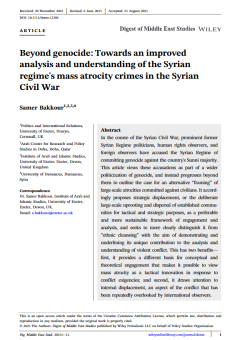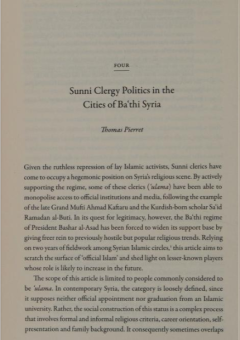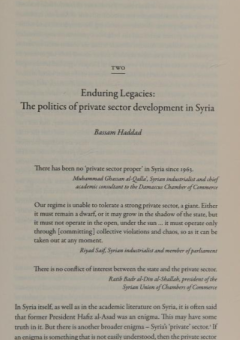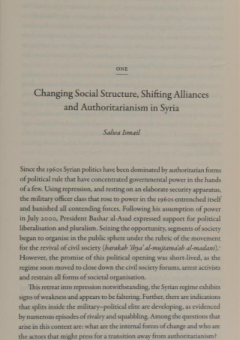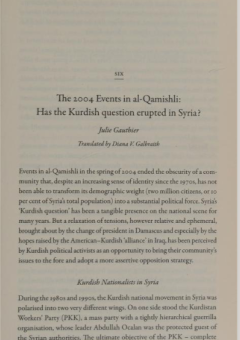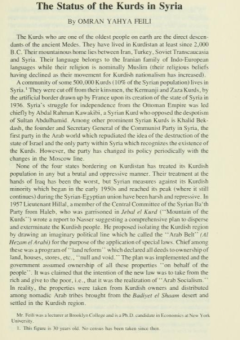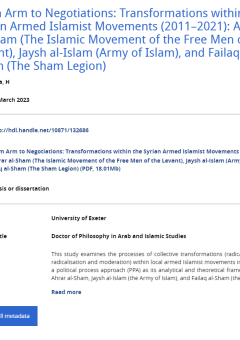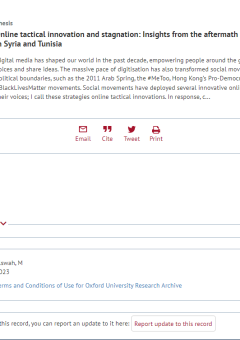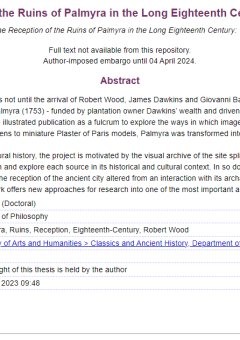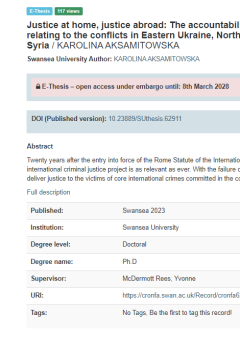Day: September 23, 2023
- October 2, 2023
- 4:43 pm
Abstract / Review
In the course of the Syrian Civil War, prominent former Syrian Regime politicians, human rights observers, and foreign observers have accused the Syrian Regime of committing genocide against the country’s Sunni majority. This article views these accusations as part of a wider politicization of genocide, and instead progresses beyond them
- September 27, 2023
- 1:42 am
- September 27, 2023
- 1:35 am
- September 27, 2023
- 1:31 am
- September 27, 2023
- 1:19 am
Abstract / Review
Events in al-Qamishli in the spring of 2004 ended the obscurity of a community that, despite an increasing sense of identity since the 1970s, has not been able to transform its demographic weight (two million citizens, or 10 per cent of Syria’s population) into a substantial political force. Syria’s ‘Kurdish
- September 27, 2023
- 12:59 am
- September 26, 2023
- 1:08 am
Abstract / Review
This study examines the processes of collective transformations (radicalisation, de-radicalisation and moderation) within local armed Islamist movements in Syria, using a political process approach (PPA) as its analytical and theoretical framework. Using Ahrar al-Sham, Jaysh al-Islam (the Army of Islam), and Failaq al-Sham (the Sham Legion) as case studies, it
- September 26, 2023
- 1:02 am
Abstract / Review
Digital media has shaped our world in the past decade, empowering people around the globe to express their voices and share ideas. The massive pace of digitisation has also transformed social movements across geo-political boundaries, such as the 2011 Arab Spring, the #MeToo, Hong Kong’s Pro-Democracy, and #BlackLivesMatter movements. Social
- September 26, 2023
- 12:56 am
Abstract / Review
Rediscovered in the late seventeenth century by English explorers, it was not until the arrival of Robert Wood, James Dawkins and Giovanni Battista Borra that the ruins of Palmyra in Roman Syria were communicated more broadly to a Western audience. Wood’s Ruins of Palmyra (1753) – funded by plantation owner
- September 26, 2023
- 12:53 am
Abstract / Review
Twenty years after the entry into force of the Rome Statute of the International Criminal Court, the international criminal justice project is as relevant as ever. With the failure of multilateral efforts to deliver justice to the victims of core international crimes committed in the context of armed conflicts in

